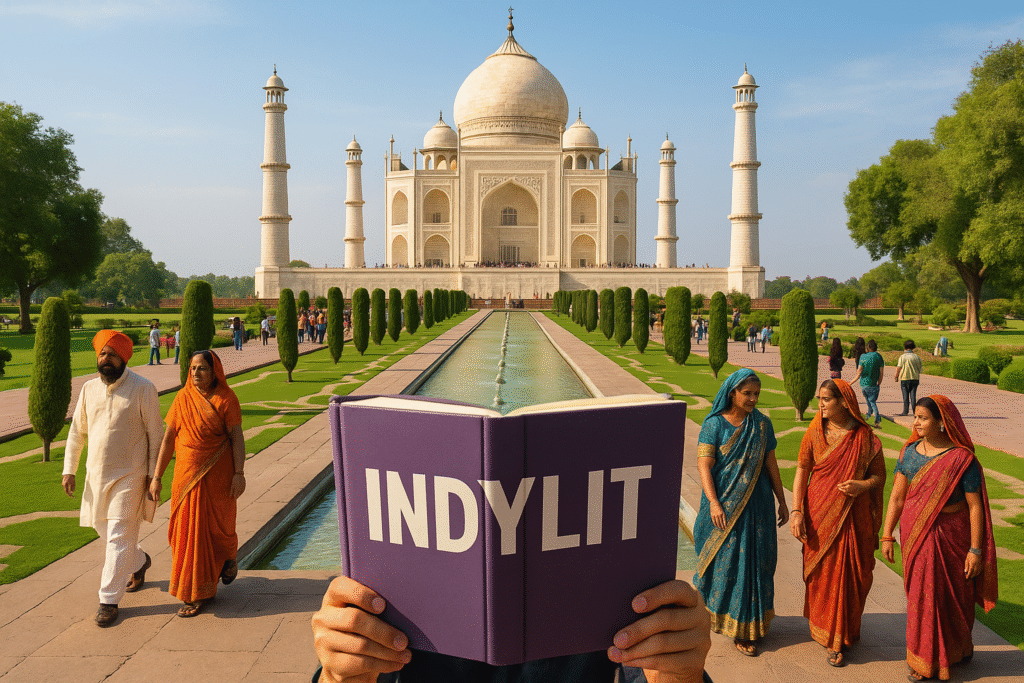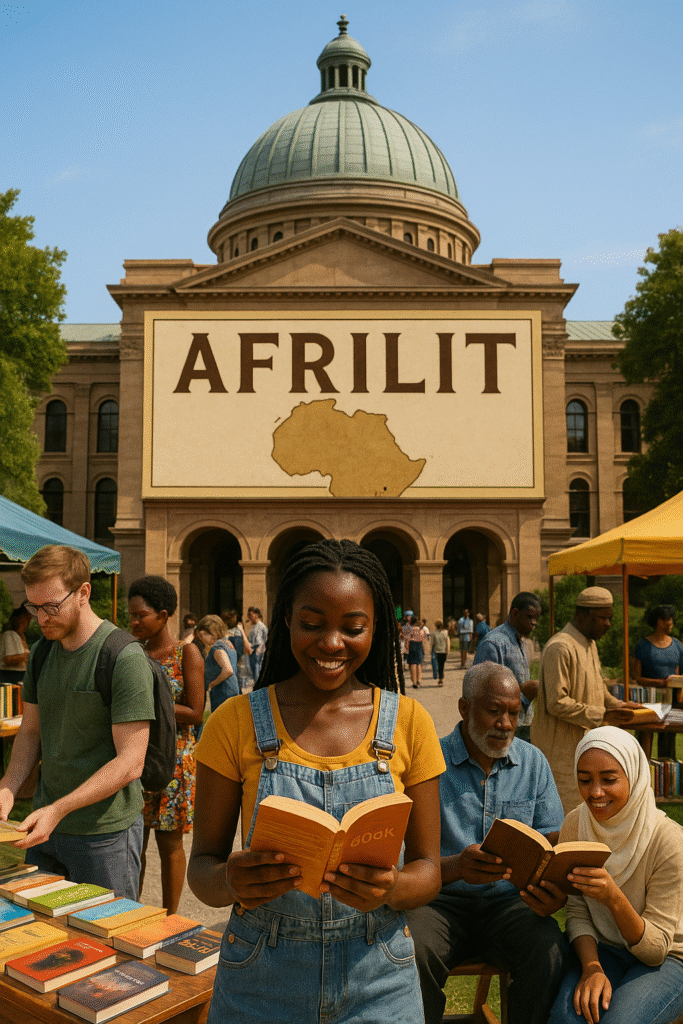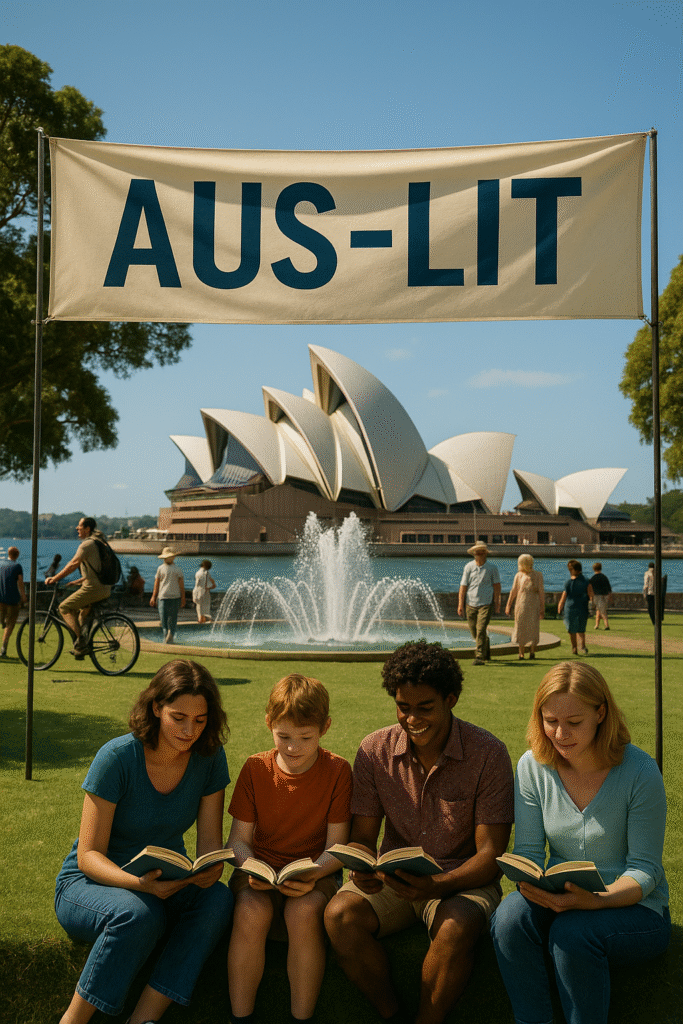The Global Scroll
Beyond Time, Space & Borders
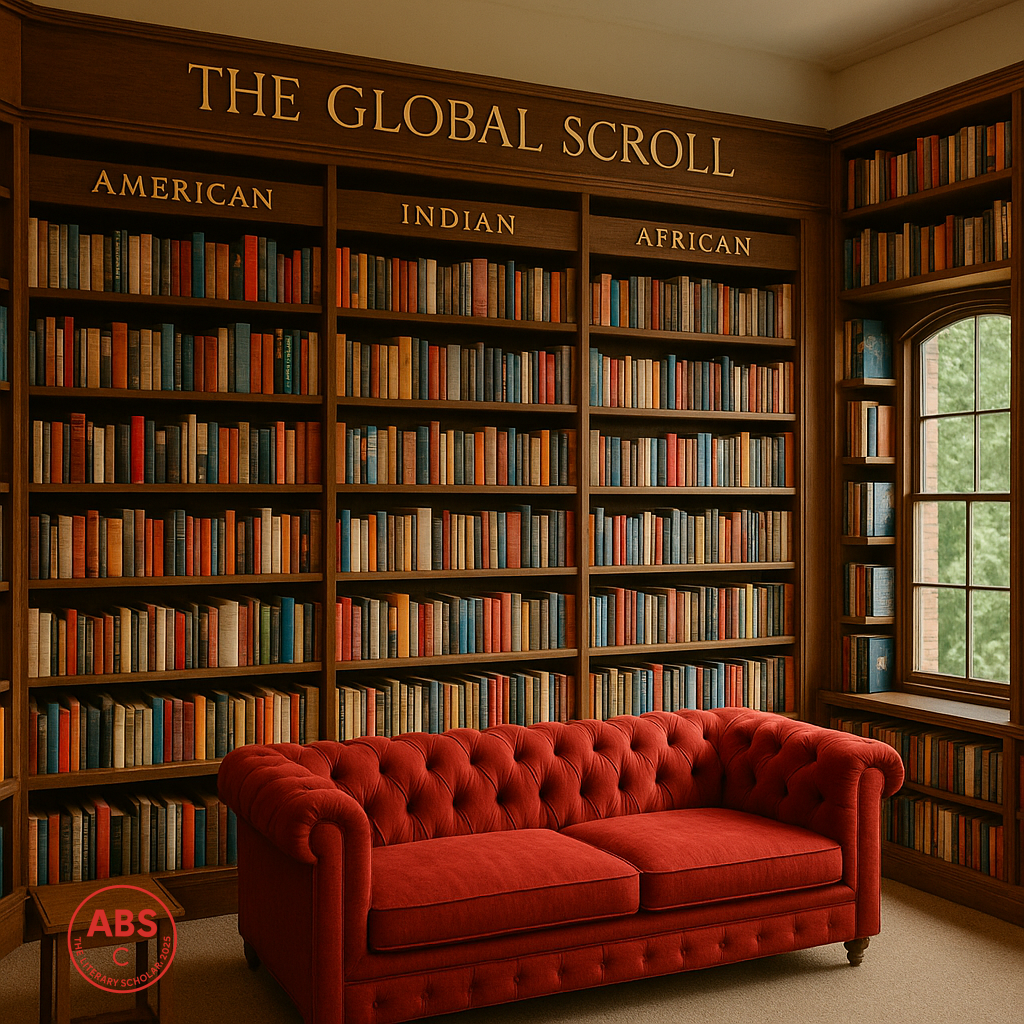
Once upon a time (and quite a few time zones), someone picked up a pen and accidentally started a revolution. That’s the thing about literature—it rarely respects the limits it’s assigned. Nations draw borders; authors doodle across them. Empires rise and fall, but metaphors migrate freely. The Scholar’s Scroll goes wandering too—into deserts and drawing rooms, across colonies and cafes—following words that were never meant to stay put.
Of course, somewhere in the middle of alphabet soup and accidental genius, ABS, the ever-curious scholar behind this scroll, had a thought—and, as usual, it refused to stay local. Why stop at a single syllabus when the whole world is whispering in English? This page, then, is part research, part rebellion, and part irresistible urge to entertain fellow readers with accents, ironies, and literary footnotes that behave like punchlines. Global literature, according to ABS, deserves not just study but stage time. And perhaps the occasional dramatic pause.
When Language Becomes a Passport
Here, we scroll past the usual suspects. Past where the syllabus stops and the voices begin—those awkward, luminous, stubborn voices that won’t wait their turn. These are the writers who colonised the coloniser’s language, who turned margins into centre stage, who inked injustice into irony and made trauma rhythmically beautiful (because, apparently, pain scans better in iambic pentameter).
So welcome to a world not of genres, but of geographies turned inside out. Where mangoes meet metaphors, revolutions rhyme with tea, and exile always comes with a footnote. We’re not just reading stories—we’re reading survival, swagger, sarcasm, and the occasional spiritual crisis wrapped in punctuation.
The Scholar’s Scroll continues—outpacing maps, ignoring timelines, and translating the world into one long, inconveniently unforgettable sentence.
But before you imagine this as a parade of polite, multicultural tokens, let’s get one thing clear: this isn’t about representation—it’s about reclamation. About what happens when language becomes the last remaining homeland, when the only place left to return to is a blank page. Some wrote in defiance, others in exile, and a few just to get through an existential Monday. And somewhere along the way, what began as borrowed expression became the boldest rebellion—crafting beauty with borrowed alphabets and stolen colonial ink.
English, in this Scroll, is not the Queen’s tongue—it’s the people’s megaphone. It’s been unbuttoned, remixed, accented, and occasionally set on fire. It’s English after it’s been translated by sunlight, protest, curry leaves, gospel choirs, salt mines, and inherited grief. It’s English with sand in its shoes and ancestral ghosts in its footnotes. And it’s glorious.
Where Syllables Defy Maps
You’ll find no neat chronology here, because the Global Scroll laughs at timelines. The past lives next to the present, colonial scars bleed into futuristic satire, and postmodernism may occasionally show up at the wrong party. The question isn’t “Where are we in literary history?” but rather “Whose history did we forget to read?” It’s literature that asks you to look again. To reread the line you underlined in school and wonder how many accents you silenced while doing it.
And don’t expect only solemn voices either. There’s rage here, sure—but also riotous humour, brilliant mischief, and the kind of wit that makes editors nervous. The footnotes are winking, the commas are sighing, and some sentences wear protest like perfume. In this scroll, a proverb can start a war, a love letter can topple an empire, and silence? Silence can say everything.
The authors on this journey aren’t tourist guides of their cultures—they’re saboteurs of assumption. They’re not waiting for permission to be canonical; they’re busy making the canon combust. They know that English literature doesn’t belong in one postcode or one pronunciation guide. It sprawls. It steals. It sings differently depending on who’s holding the pen. And it should.
The Global Scroll isn’t a curriculum—it’s a cartography of the human condition. With all its contradictions intact. It honours the line that sounds like home and the one that makes you ache for a place you’ve never been. It is literature as migration, as memory, as magic trick. And no, there’s no visa required.
And if this scroll feels unusually personal, that’s because it is. Behind these words is ABS—a scholar with ink-stained fingers, an incurable enthusiast of literature who has spent decades reading between the lines and now writes between the borders. This page is not an institution’s voice or an academic requirement. It’s a labour of love, curiosity, and literary mischief. The scroll unfolds not from obligation but obsession—with language, with legacy, and with the untamed beauty of untold stories.
Every paragraph here has passed through a mind that still gets goosebumps from a well-placed comma, a spirit that insists metaphors can mend what politics can’t, and a soul that believes literature isn’t just study—it’s sustenance.
We read not just for knowledge but for recognition. For that quiet, breath-held moment when a sentence written half a world away suddenly completes your own. In those moments, literature becomes a shared heartbeat—irregular, wild, and exquisitely human. You don’t need a passport for this journey. Just a curious mind, a willingness to laugh mid-lecture, and a decent tolerance for metaphors that misbehave.
So come unprepared. Come as you are—curious, chaotic, occasionally caffeinated. There are no right answers here, only better questions. And somewhere in these pages, you may find a voice that once felt foreign beginning to sound familiar. Or, more curiously, you may hear your own voice echoed back—only with a new accent.
Because this is The Global Scroll—Beyond Time, Space, and Borders.
Where English has travelled further than its ships.
Where literature outruns every empire.
And where you, dear reader, are never quite the same again.
Filed under: Words without Walls. Read generously. Annotate wildly.
Curated with care by ABS — Scholar, Scribbler, and Unapologetic Literary Wanderer.
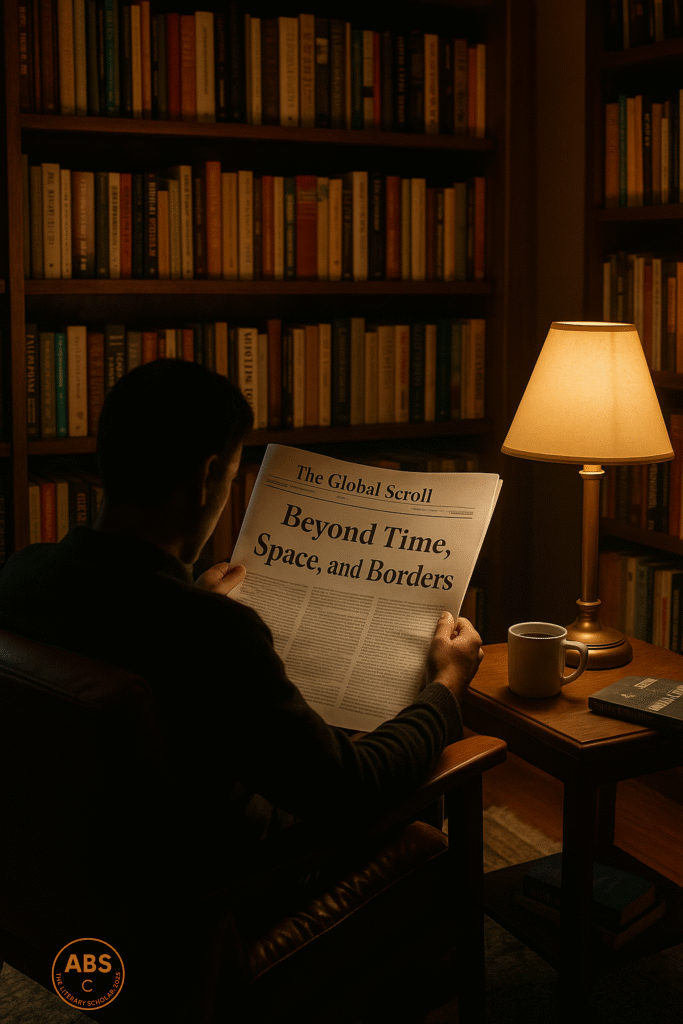
Share this page / Spread the witty word / Let the echo wander / Bookmark the brilliance


